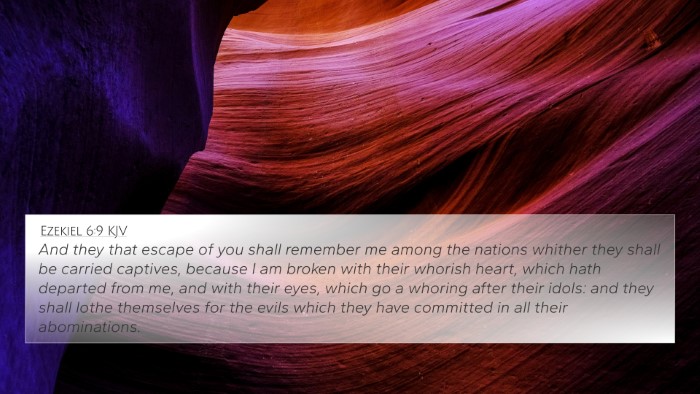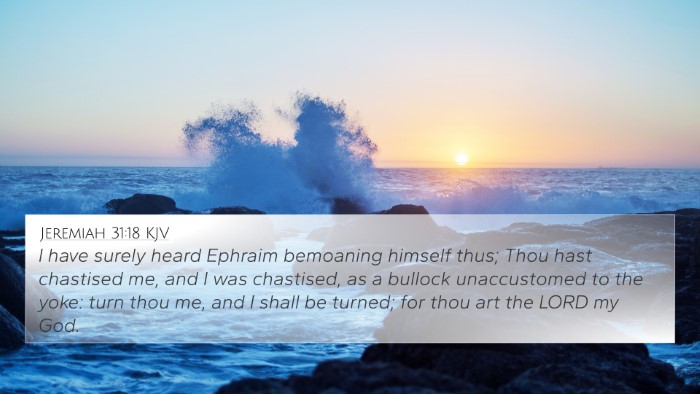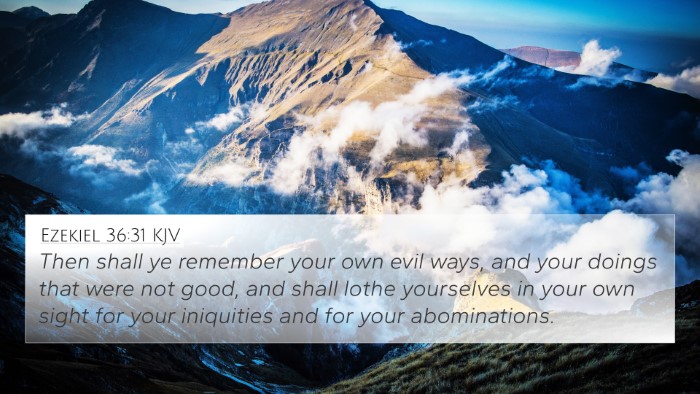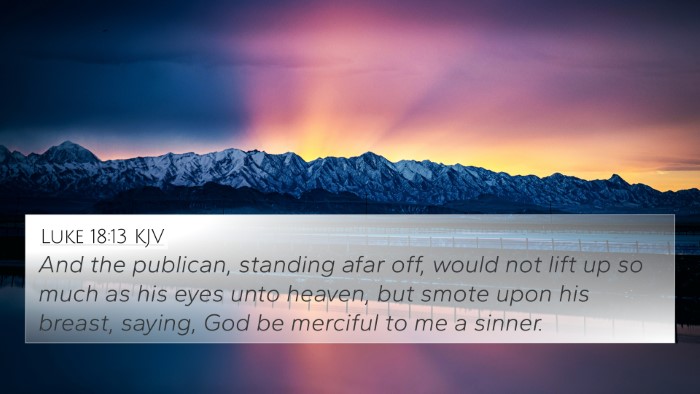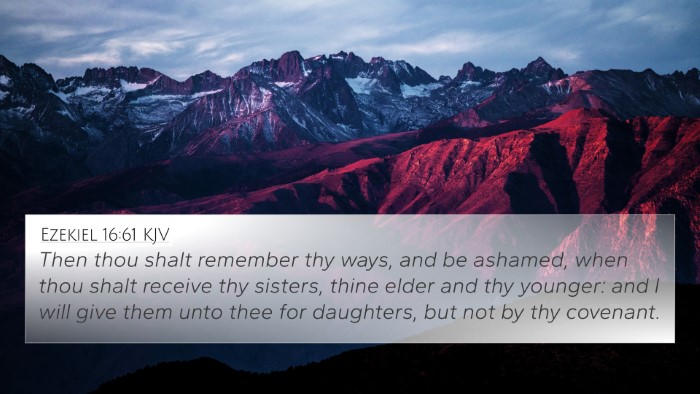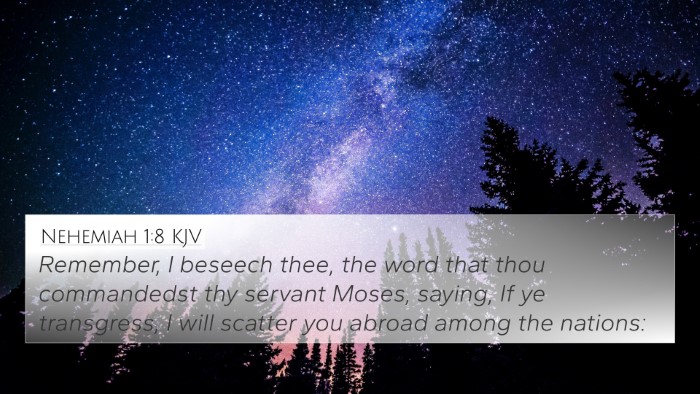Ezekiel 20:43 - Understanding the Verse
Ezekiel 20:43 states, "And there you shall remember your ways and all your doings, with which you were defiled; and you shall loathe yourselves in your own sight, for all the evils that you have committed." This verse is a profound reflection on the human condition and the necessity of repentance. Below, we provide insights from various public domain commentaries to explore the meaning of this verse.
Commentary Insights
-
Matthew Henry:
Henry emphasizes the importance of self-reflection and remembrance of one's actions. He explains that this verse can be understood as a call to acknowledge one’s sins and recognize the severity of them. The act of remembering serves as a powerful tool for repentance and spiritual growth. This recollection leads to a state of loathing for past transgressions, reminding us of the need for divine forgiveness and restoration.
-
Albert Barnes:
Barnes interprets this passage as a moment where the children of Israel are called to a deep introspection. He highlights that the realization of their past iniquities is essential for them to turn back to God. He posits that by remembering their wicked ways, they provoke a sense of shame that is necessary for repentance. This acknowledgment is a precursor to receiving God’s mercy and establishing a renewed covenant relationship with Him.
-
Adam Clarke:
Clarke notes the emotional aspect of this verse, discussing the state of contrition it describes. He points out that the loathing referred to here is not merely an emotional reaction but a foundational step towards true repentance. Clarke emphasizes that genuine repentance involves a deep sense of sorrow for sin and a longing for reconciliation with God.
Connections with Other Scriptures
To further understand the themes presented in Ezekiel 20:43, we can explore various cross-references in the Bible:
- Psalms 51:3: "For I acknowledge my transgressions, and my sin is always before me." - This verse aligns with the theme of remembrance of sinful ways.
- Isaiah 30:22: "You will defile your idols overlaid with silver and your images covered with gold; you will throw them away like a menstrual cloth, and say to them, 'Away with you!'" - Represents the anguish over past dealings with sin.
- Jeremiah 31:19: "Surely after my turning, I repented; and after I was instructed, I struck myself on the thigh; I was ashamed, yes, even humiliated." - Demonstrates the shame felt upon realizing one's wrongs.
- Romans 7:24: "O wretched man that I am! Who will deliver me from this body of death?" - Paul reflects a similar idea of lament over one’s sinful state.
- 2 Corinthians 7:10: "For Godly sorrow produces repentance leading to salvation." - This verse underlines the importance of sorrow as a catalyst for true repentance.
- Lamentations 3:40: "Let us search out and examine our ways, and turn back to the LORD." - A call to introspection and turning back to God.
- Revelation 2:5: "Remember therefore from where you have fallen; repent, and do the first works." - This verse speaks to the act of remembering and repenting as a response to spiritual decline.
Thematic Connections
This exploration highlights several thematic connections between Ezekiel 20:43 and other Biblical texts. Below are several thematic elements:
- Repentance: The call to remember and reject past behaviors emphasizes the broader theme of turning from sin across both the Old and New Testaments.
- Self-reflection: The need for self-examination is a recurrent theme in Biblical teachings.
- God’s Mercy: The process of acknowledgment, loathing for sin, and the pursuit of repentance leads to God’s grace—a prevalent theme throughout scripture.
Applying the Insights
For those studying Biblical texts, this verse and its interpretations can serve as a vital guide. Through the practice of cross-referencing Biblical texts, one can deepen their understanding of connections between Bible verses and grasp how various themes are interwoven throughout scripture.
Tools for Bible cross-referencing can aid scholars and laypersons alike in exploring how different parts of scripture relate to one another. Utilizing Bible concordance and cross-reference Bible studies can enrich one’s personal growth and understanding of spiritual matters.
Conclusion
In summary, Ezekiel 20:43 serves as a reminder of the importance of repentance and introspection within the Christian faith. By connecting this verse with others through thematic and scriptural cross-referencing, believers can gain a comprehensive understanding of the need for reconciliation with God and the transformative power of acknowledging one's failings.



